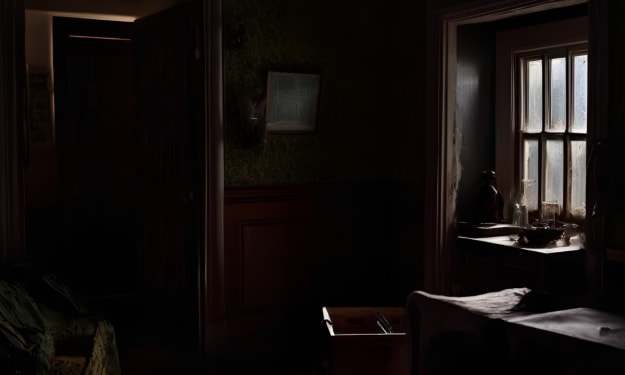*Exploring the Mystery of Déjà Vu: Scientific and Paranormal Perspectives
Unraveling the Uncanny Feeling of Familiarity and Its Possible Connections to Dreams and Remote Viewing

So, what is déjà vu? No, it’s not just a song by Olivia Rodrigo or a movie starring Denzel Washington. Déjà vu is a French phrase that means "already seen." It describes the uncanny feeling that you've experienced your current situation before. This sensation usually lasts only a few seconds and brings a strong sense of familiarity, only to disappear as quickly as it arrived. It's tough to describe beyond saying, "I've been here before," or "I've seen this before."
For instance, imagine you once had a dream or a fleeting vision of a blue car with a flat tire parked next to a red fire hydrant. Dreams often contain random details that don’t seem significant at the time. Upon waking, you might forget about this dream. But two years later, while shopping for a shirt, you glance to your right and there it is – a blue car with a flat tire next to a red fire hydrant. You suddenly recall the dream and think, "I’ve seen this before." This powerful sense of familiarity occurs even though the scene should be entirely new to you.
Déjà vu can be triggered by various scenarios, such as visiting a place for the first time, hearing a certain phrase in conversation, or walking into a room that seems eerily familiar. As much as 70% of the population reports experiencing déjà vu, with occurrences most common among those aged 15 to 25. Although it's long been a curiosity more than a subject of serious scientific study, interest in understanding déjà vu is growing among cognitive researchers.
Explanations for déjà vu generally fall into two categories: scientific (cognitive and neurological) and paranormal. Let’s examine both.
Cognitive explanations suggest that déjà vu is a result of inattentional processing. If you’re not fully paying attention, a brief look or listen might not register, but when you do pay full attention, it feels like you’ve seen or heard it before. Memory explanations propose that you have seen or heard something before but forgot about it, and now it feels familiar upon reencounter. Dual-processing theories suggest that the brain processes familiarity and memory asynchronously, causing a brief delay that results in a sense of familiarity. Neurological theories attribute déjà vu to small seizures in the temporal lobe or delays in information transmission between sensory organs and the brain.
While these scientific explanations are compelling, some argue that they are too simplistic. They might not fully account for the wide variety of déjà vu experiences reported by people from all walks of life.
On the paranormal side, some believe that déjà vu might be linked to dreams. Dreams are a mix of thoughts, images, and sensations that occur during sleep, often incorporating random and nonsensical elements. One theory suggests that dreams help sort through thoughts and memories, discarding the irrelevant while retaining the important. Since dreams and déjà vu are both tied to memory and familiarity, some speculate that fragments of dreams could predict future events, resulting in déjà vu when those events occur. This phenomenon even has a name: déjà rêvé, the feeling of recalling a dream that seems to come true in real life. Studies have found that up to 95% of people have experienced déjà rêvé.
Another fascinating concept is remote viewing, a practice some claim allows people to perceive distant or unseen targets using only their mind. Though often dismissed as pseudoscience, the CIA ran a program from 1978 to 1995 to study and utilize remote viewing. Practitioners of remote viewing argue that it involves seeing oneself in the future observing a particular target, creating a causal loop where a future event influences the past.
My theory is that déjà vu and remote viewing might be related, with the main difference being intentionality. Remote viewing is a deliberate effort to perceive information, while déjà vu happens spontaneously. In both cases, the brain might be accessing a memory from a different time.
So, what do you think? Have you experienced déjà vu? What are your thoughts on remote viewing?
About the Creator
Agatha Aganyi
I'm a versatile content creator specializing in poetry, health, Education, Science, Mystery, and lots more, making complex topics engaging and easy to understand.
Enjoyed the story? Support the Creator.
Subscribe for free to receive all their stories in your feed. You could also pledge your support or give them a one-off tip, letting them know you appreciate their work.






Comments
There are no comments for this story
Be the first to respond and start the conversation.